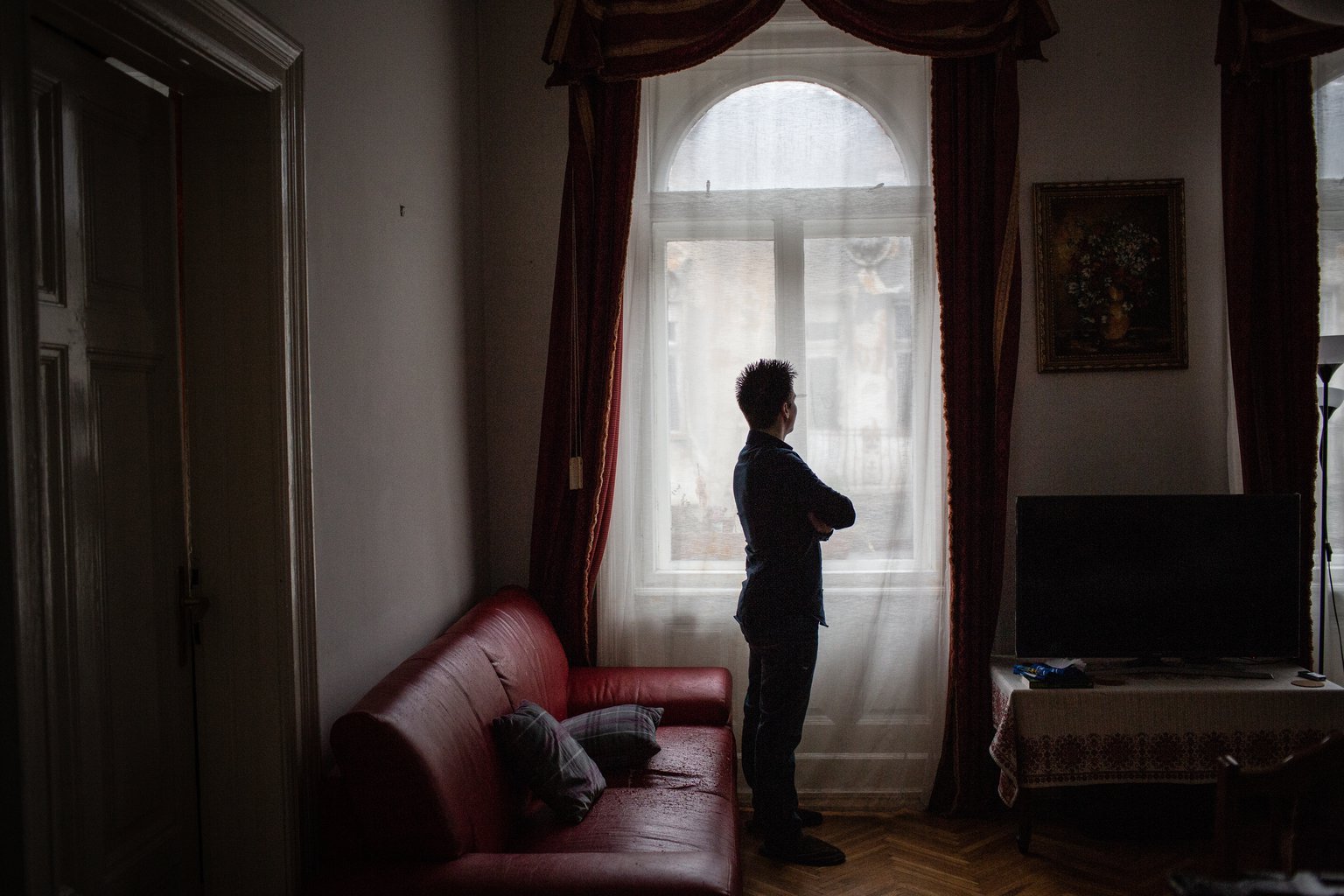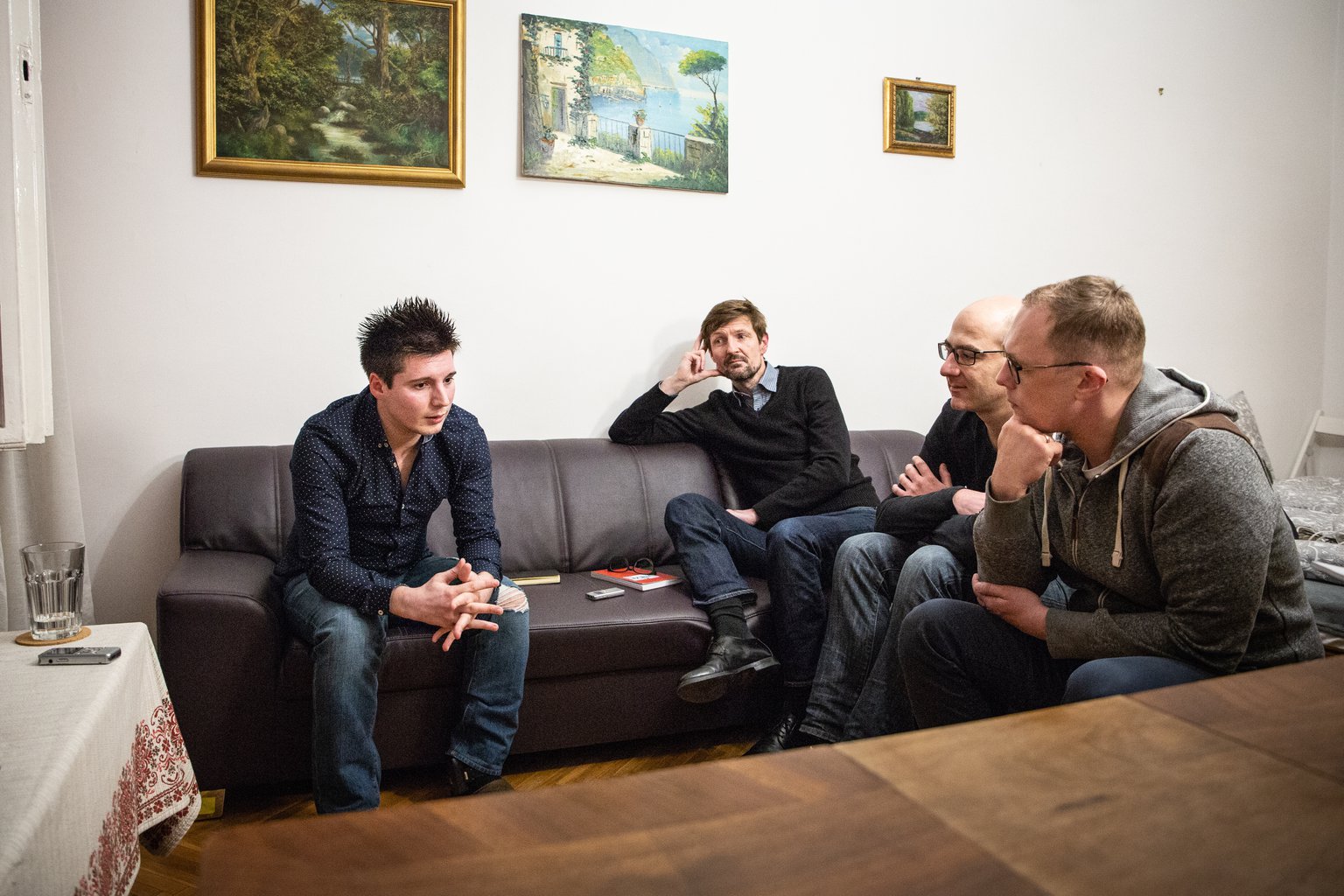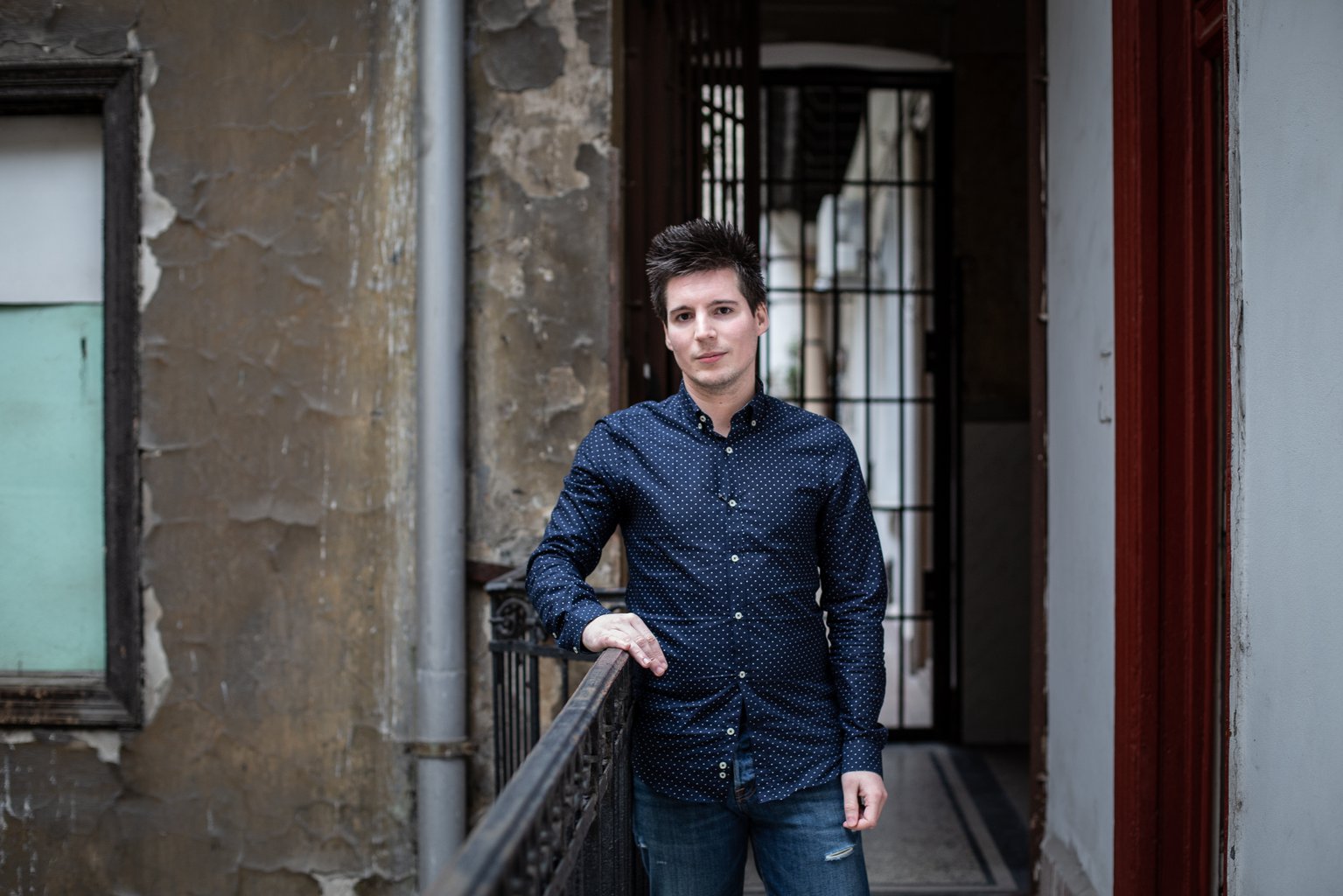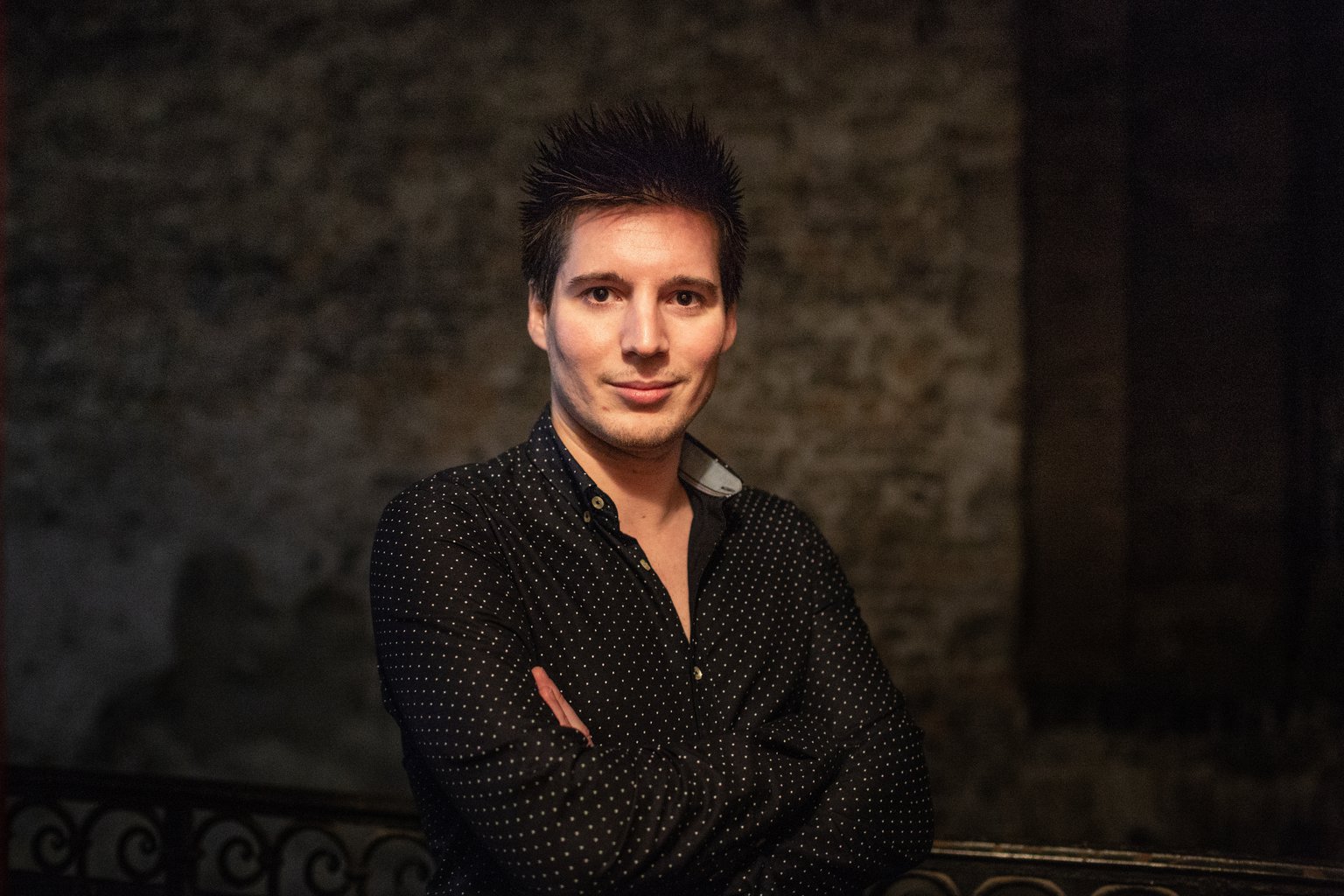Budapest, District VII. The massive doorway leading to the courtyard behind an old residential building can only be opened by means of a multi-digit access code. The stairwell is draughty and dark; on the second floor, a security gate blocks the final metres leading to the door of John’s apartment.
This is the home of the whistleblower behind Football Leaks, who has been under house arrest since last week. The man who has shaken the football business for the past three years as a phantom using the code name ‘John’.
His data has led to spectacular revelations and resulted in numerous investigations throughout Europe. The whistleblower handed over more than 70 million documents, many of them marked as strictly confidential, to German news magazine Der Spiegel, which shared the material with the research network European Investigative Collaborations (EIC), of which The Black Sea is a part. This is the largest data leak to date
This information proved vital to investigations such as Football Leaks and Malta Files.
John’s real name is Rui Pinto, his identity now revealed by his lawyer.
In January a European Arrest Warrant from Portuguese authorities accused Rui Pinto of attempted extortion and data theft. Now the 30-year-old Portuguese is waiting for a Hungarian court to decide if he faces deportation to Portugal.
Pinto opens the gate. He smiles bashfully. He is wearing slippers on his feet, his trouser leg bulges out around his left ankle.
“This is my new friend,” says Pinto, pointing to his electronic ankle tag. It contains a transmitter. The whistleblower is only allowed to leave his apartment as far as this gate. Journalists from Der Spiegel, NDR and the French investigative portal Mediapart have travelled to Budapest to meet him. For two days, Pinto will talk about his life as a whistleblower and about the accusations he faces.
“I don’t consider myself a hacker”

“I deny having committed any criminal offence” Rui Pinto (Photo: Maria Feck/Der Spiegel)
Mr Pinto, are you a hacker?
I don’t consider myself as a hacker, but a citizen who acted for public interest. My sole intention was to reveal illicit practices that affect the world of football.
Could you tell us how you got hold of more than 70 million confidential and in some cases highly sensitive documents from the international football industry?
I initiated a spontaneous movement of revelations about the football industry. So I am not the only one involved. Over time, more and more new sources have been added, who have shared their material with me, and the database grew. This shows that there are many other people preoccupied by that matter.
The European warrant which a Portuguese Public Prosecutor issued against you and which led to your arrest two weeks ago accuses you of cybercrime. This has to do with the club Sporting Lisbon and with the publication of confidential emails in the year 2015. What do you have to say about that?
I am ready to explain all of it before judicial authorities when the time comes, but I deny this description.
In addition, you are accused of having used your inside knowledge to try and blackmail the agency Doyen Sports in the autumn of 2015.
The only reason I contacted Doyen was to confirm the wrongfulness of its actions, based on the amount of money they were ready to pay to make the revelations go away.
That is not a game. It sounds like blackmail.
No, I just wanted to see how valuable it was, and how important the documents and the information were to Doyen. I thought I could find that out by learning how much Doyen was prepared to pay for my silence. I never had the intention to take the money. I only wanted to expose Doyen.
You even got a lawyer involved, who was supposed to arrange a deal for you. He met with the managing director of Doyen.
That is true. I wanted to see what they would offer him. While he was negotiating, I continued to read the documents. As I did so, I told myself: If I allow them to buy me out now, I am no better than this whole business. So I wrote to Doyen and told them to keep their money. Not a single cent was paid. What I did was very naïve. Looking back now, I regret it. But I repeat that I deny having committed any criminal offence.
Investigators in Portugal are also said to suspect you of having supplied FC Porto with incriminating emails from their arch-rivals Benfica Lisbon. The publication of those documents electrified Portugal and plunged Benfica into a crisis. Did you have anything to do with that?
I have not read any statement by the public authorities that finds any connection between me and the Benfica scandal. A magazine released the Benfica story last autumn. It changed my life. My photograph was on cover pages throughout the country. My Facebook account and my email address were subsequently inundated with death threats.
Have you ever made money using the power of your knowledge about the criminal dealings of the football industry?
I know that such rumours exist in Portugal. To give you a clear answer: no, never.
Have you received offers to sell your data?
Several. Once, I received an anonymous email in which I was offered more than half a million euros. I turned them all down, because I never acted with the aim of getting money, but for the public interest.
The lawyer who negotiated with Doyen on your behalf in 2015 had already represented you some time before in a dispute with the Caledonian Bank on the Cayman Islands. The media in Portugal has reported that you stole 300,000 USD from this bank. Is that true?
In the end, I received no money from this bank. It was not that I stole money, that is not the true story.
What is the true story then?
I am not allowed to talk about the precise circumstances because I signed a non-disclosure agreement with the bank. One thing is certain: If I had committed a criminal offence, the bank would have taken me to court. The case was never brought before a court and my criminal record is clean to this day, in Portugal and everywhere else in the world.
Why did you pick a fight with the Caledonian Bank?
At the time, banks in Portugal were going bankrupt; people lost their livelihoods from one day to the next. At the same time, more and more money was disappearing from Europe. Everyone could see that something was amiss. I wanted to take a closer look at things. I wanted to understand the offshore system.
What did you find?
Textbook examples of how to move huge sums of money out of the country and transfer them to accounts in various offshore tax havens. The more I looked into it, the greater was my sense of injustice.
That kind of data could be very interesting for tax investigators
I know. That’s why I held on to it. That data set has a similar potential to the Panama Papers. It shows how the Cayman Islands were systematically used for money laundering and tax evasion.
What is happening to that data?
I would like to share it with the investigating authorities. The documents clearly reveal the front men, the bankers, the accessories and the aids to the tax fraud.

“The documents are authentic. That is what matters. This and the content,” Rui Pinto interviewed (Maria Feck/Der Spiegel)
Opponents of Football Leaks claim that your documents should not be used because they were obtained by illegal means.
Others claim the data has been manipulated, falsified or taken out of context. As a result, they say, it cannot be admitted as evidence in a court of law. I think that’s nonsense. The documents are authentic. That is what matters. This and the content.
Were you pursuing a particular agenda in procuring your data?
I researched who were the key protagonists in the crooked football business, and which agents and consultants were most often involved in crooked deals. I wanted to expose those dealings.
Particularly at the beginning of the Football Leaks research, you had a very large number of documents on Cristiano Ronaldo. Why him?
First of all, Ronaldo is my favourite player, I consider him the most complete football player in history. However his behaviour off the pitch needs to be judged entirely differently. In terms of criminal law. For this purpose, Football Leaks is and has been helpful. It couldn’t care less whether our favourite players or our favourite clubs are affected. Football Leaks shows that it acts really unbiased.
Do you see a difference between a whistleblower and a hacker?
I do not consider myself a hacker, just as a normal computer user. In addition, I don’t think it makes any difference whether someone passes on incriminating documents from within a company to the public, or whether they do so with material they receive from outside. In the end it is about whistleblowers exposing dealings which would otherwise remain concealed from society: crimes, wrongdoing and misconduct. In the best case, whistleblowers thereby unleash a public debate and trigger investigation proceedings by the authorities.
Did you ever have the feeling that you were doing something illegal?
No, not to this day. Over the years, the European Parliament, media throughout Europe and many investigative authorities have examined my data. I am convinced that what I did was the right thing.
Did you never have doubts?
I did. Especially because I did not always agree with the outcome. The investigating authorities, in particular, often disappointed me. Take the systematic tax evasion by the football industry in Spain. Here, the investigators were almost always happy to cash in a few million euros, and they never really penetrated to the root of the evil. Agents, lawyers, bankers: they all went unchallenged. Yet they are the ones pulling the strings; they were the ones who set up these fraud schemes.
How did you react?
I kept going. I wanted to increase the pressure on the authorities and also on society. I believed that at some point something would have to change.
You once said that your role models were Edward Snowden, Julian Assange and Antoine Deltour, whistleblowers of the recent past. Do you consider yourself to rank among them?
I don’t wish to compare myself. This is not a Formula 1 race. I never did all this for my ego, I don’t need this attention. I was never about becoming the world’s greatest whistleblower, but about exposing as many wrongdoings as possible. Whistleblowers only exist because of the numerous unlawful practices that are perpetrated in our societies.
Little is known about you publicly until now. Where in Portugal did you grow up?
I come from Vila Nova de Gaia, a town on the Atlantic, not far from Porto.
What do your parents do for a living?
My father is a pensioner. He was a shoe designer for over 30 years and travelled around Europe a great deal. My mother stayed at home. She died of cancer when I was eleven. That was a tough time for me.
How did you cope with it?
It helped me to grow up. During her illness, I could barely contain my anger; I often got into fights at school. After her death I learned to cope with things on my own.
You studied history at University, but never finished your degree. Why?
While I was at university, my relationship with Portugal changed. Many of my friends left the country, because they no longer saw a perspective for themselves in view of the economic crisis. Politicians and greedy entrepreneurs ruined a once successful country. Nothing worked anymore; I had lost hope for Portugal.
How did you cope with the situation?
First of all, I chose to do an Erasmus term [an EU-backed program to fund students and recent graduates in placements abroad] in Budapest. I had never been abroad before, always living with my parents. I came home again after half a year, but I knew that I wanted to return to Hungary quickly. A year later, I emigrated to Budapest.
Why Budapest?
I love this city. The light, the Danube, the castles and bridges. I would like to stay here forever. I have many friends, and my girlfriend lives here. Also, I have discovered that there is a line of business here for me. My father was very interested in the antiques trade, and I developed quite an understanding of it too. There are lots of treasures in eastern Europe which no one is paying any attention to.
What gave you the idea in the autumn of 2015 to launch your website Football Leaks?
I have been a football fan ever since I was a child, and I already realised round the time of the Bosman ruling [on player transfers] that football was developing in completely the wrong direction. The best young players were simply moving to the top teams; the entire competition was shifting to the advantage of the top clubs. The main trigger was the FIFA scandal in 2015. Alongside all the arrests at the International Federation, I saw there were irregularities in numerous transfers within Portugal. That more and more investors were thronging into the market. I started to collect data.
How did you come by your technical knowhow? Did you ever study computer sciences?
Never.
How did you verify the data?
I read. I read a great deal. Every day, I spent hours sitting in front of the documents and analysed them. The more I read, the more shocked I was.
About what?
A great many documents showed how offshore companies were set up, how sports agents hid behind front men, how tax evasion was carried out on a large scale. Business was flourishing; the money filled up the accounts in tax havens.
When did you realise that you were making enemies?
The company Doyen sent private investigators after me. So did a powerful club association. Once, a young woman approached me at a party. She flirted with me, but I noticed that something was wrong. She asked me for my number and I gave it to her. I wanted to see what she was up to.
Was she a private investigator?
No, she was a tabloid reporter and worked for an English mass-circulation paper. But I only found that out several weeks later. Only when I received an SMS text message: “Hey, we know you are the guy from Football Leaks. I work for a law firm. We are interested in getting documents from you.” She wanted to trick me.
Why did it take the police so long to find you?
Good question. I had an apartment here in Budapest all the time. I lived a completely normal life here.
At our meetings, you told us that you changed your location every two days.
I did travel a lot, yes. But on my normal ID card. I did not hide myself.
You have a Hungarian girlfriend. What did you tell her when you went away?
Keeping all this hidden is very tiring. My girlfriend realised that something was fishy, but I never talked to her about the details. I wanted to protect her. When I was arrested, she almost went berserk. She cried a lot. But she has stuck with me and is now helping me through these times.
“You are never coming back here again”

“I was never about becoming the world’s greatest whistleblower, but about exposing as many wrongdoings as possible,” Rui Pinto (Maria Feck/Der Spiegel)
How and where in Budapest were you arrested?
It was in the early evening on January 16. My father, who was visiting me together with my stepmother, and I came back from shopping at a supermarket. When we turned down the street in which my apartment lies, two plain-clothes officers approached me. They checked my ID and I had to empty out my pockets and the backpack. Then they showed me the European arrest warrant, everything in Hungarian, and handcuffed me.
Did the officers also search your apartment?
They didn’t have a search warrant on them. Nevertheless, they used my key to access the apartment. My stepmother was shocked when all of a sudden nine police officers stood facing her in the kitchen. They told me to pack my things. One of them said: You are never coming back here again.
Were you able to contact a lawyer during your arrest?
They prohibited me from doing so. I said goodbye to my parents and told them everything was going to be fine. Then I was taken to a police station. I was locked into a cell for two persons. The other guy was okay. But at night, a guard came round every half an hour and switched the light above my bunk on and off. That only happened to me.
How long did you remain in the cell?
Two nights. Then I was taken to the hearing at which the judge ordered me to be held under house arrest.
Did the Hungarian police confiscate any objects in your apartment?
My computer, about ten hard drives, three mobile phones and a couple of other electronic devices too.
Is this data relevant to the general public, because it might describe criminal offences?
Yes, definitely.
Are these hard drives encrypted?
I do not wish to answer that.
What volume of data are we talking about?
Ten terabytes, about six of which I have not yet passed on.
Do you or your fellow campaigners have copies of this data?
I cannot answer that either.
The Portuguese authorities are seeking your extradition. What do you think will happen to the confiscated data if the Portuguese judiciary should get hold of it?
The Hungarians ought not to hand over these hard drives to them at all, because the arrest warrant only lists allegations dating back to 2015. I think the Portuguese first want to get their hands on everything that was found on me, in order to prepare further lawsuits against me.
What are you hoping for?
I expect public prosecutor’s offices throughout Europe to get together and demonstrate to the Hungarian and Portuguese authorities that my information is of great public interest. That they need these documents for their investigations, so as to pursue crimes, crimes that are considerably more serious than whistleblowing.
Which European investigating authorities are you already in touch with?
With several. I know that my French lawyer, William Bourdon, is in contact with the Swiss and the Belgian Prosecutors. But so far I have only met with the French investigators.
When did the first meeting take place?
In the winter of 2018, in Paris.
At the time, was it only about your assistance as an anonymous witness, or had you already considered revealing your identity?
We talked about all the possible options.
Did you reveal your identity to the French authorities last year?
Yes. I told them that I was John.
Have you already handed over documents to the French authorities, or are the relevant documents among the material that has now been confiscated?
The only thing I can say, is that we are cooperating.
“I have been approached by US Authorities”
What about the investigations against Cristiano Ronaldo, who is accused of rape by an American woman, which Ronaldo denies?
I know very well that there is an investigation but I don’t wish to comment on that.
Were you approached by the US authorities?
Correct.
Did you share some documents with them?
It’s an ongoing investigation and I really prefer not to comment on that.
Did investigating authorities already get in touch with you after the first major Football Leaks revelations in 2016?
I received a few emails from tax authorities, including one from Germany, from Munich.
How did you behave at the time?
Some of the inquiries were quite brash. The financial investigators from England first wanted to know my name and where I lived. That is crazy for a whistleblower who wishes to remain anonymous; naturally I did not reply. At that time, I had no lawyers. I needed time and a strategy that would guarantee my personal protection. Even at that time, the most credible inquiry came from France.
Why?
They seemed very determined and professional. They made it clear that they seriously wanted to pursue cases of corruption, money laundering and tax evasion in football. I had the feeling I could trust them, and I needed a strong partner. The French officials are able to launch investigations through Eurojust. I can share my data with them and they can then pass it on. One contact is enough. I understand that Eurojust is a very useful tool for the authorities from various countries to coordinate their cooperation. If other countries seriously want to carry out investigations, they will have France. And they will have me.
After the Football Leaks revelations, did any association ever try to get in touch with you?
Neither FIFA nor UEFA contacted Football Leaks. This is frustrating. In my interviews using the pseudonym ‘John’, I repeatedly made it clear that I would pass on documents in the interest of shedding light on the facts, if I was given a sign. I never received a single one.
“I am fairly certain that I will not be given a fair trial in Portugal”
Why are you resisting your extradition to your home country?
I am fairly certain that I will not be given a fair trial in Portugal. The Portuguese judiciary is not entirely independent; you run up against a lot of hidden, covert interests. Of course there are public prosecutors and judges who take their job seriously. But this football mafia is everywhere. They want to send the message that no one should pick a fight with them.
Are you afraid of a potential prison sentence in Portugal?
I am nervous because I am a target for attacks, especially by fans of Benfica Lisbon. Ever since last autumn, I have been receiving massive death threats on Facebook. When I met with French investigators, I showed them these. They said the threats should be taken very seriously. I am afraid that if I set foot in a Portuguese prison, especially one in Lisbon, I will not leave it alive.
Opening Picture: Maria Feck/Der Spiegel
